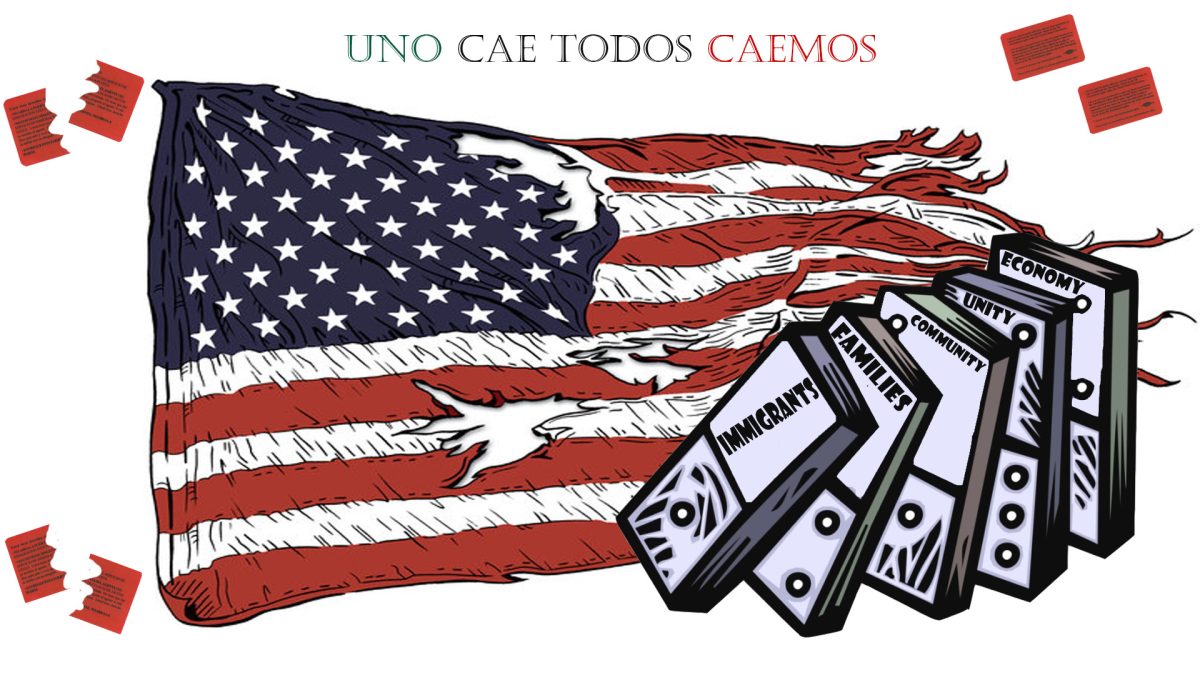Columnist discusses validity during annual Daniel Pearl Memorial Lecture
Sophomore Zachary Gephart-Canada, Wall Street Journal columnist Bret Stephens and sophomore Michael Chidbachian pose for a picture before the 2017 Daniel Pearl Memorial Lecture.
February 22, 2017
Epistemology: defined by Merriam-Webster’s Dictionary as “the study or a theory of the nature and grounds of knowledge especially with reference to its limits and validity.”
That is the one word that Wall Street Journal columnist Bret Stephens emphasized to the small group of high school and college students gathered in the intimate greenroom before delivering a bold speech at this year’s Daniel Pearl Memorial Lecture.
“It’s kind of a paradox in that in an age that we have the stupidest president in history in the White House, we are approached with these great philosophical questions,” Stephens said to the students.
The topic for this year’s lecture was “Maintaining Intellectual Integrity in the Age of Trump.” The event was held in the Korn Convocation Hall, a building in UCLA’s Anderson Complex, on Feb. 16 and consisted of a speech by Stephens, followed by a discussion between Stephens and the director of the UCLA Ronald W. Burkle Center for International Relations Kal Raustiala.

Sophomores Michael Chidbachian and Zachary Gephart-Canada take a picture with Ruth, Judea and Michelle Pearl in the greenroom of Korn Convocation Hall.
“I think the presidency is a job that comes with certain intellectual requirements,” Stephens said during his speech.
During his speech, Stephens denounced President Donald Trump, saying that the lies that his administration generates on a momentary basis are not only dangerous, but also distract from the real harm that is taking place during the first boisterous weeks of his presidency. The weeks that featured outlandish claims of “fake news,” international protests, and governmental leaks.
“By maintaining a standard of integrity, accuracy, and unbias amid political pressure,” said Stephens when asked about how the mainstream media can regain the trust of the public.
While discussing Trump’s most recent initiator of public outrage, ousted National Security Advisor Michael Flynn, Stephens said that he would not be surprised if America moved on relatively quickly because of the short-lived nature of today’s news.
“Truth is what you can get away with and outrage will always fall victim to ubiquity,” Stephens said.








